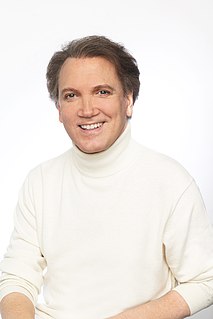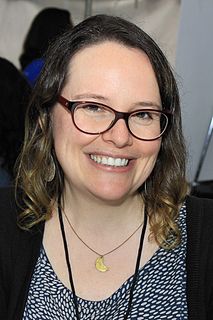A Quote by Jeff Lemire
You can write a script, but that's just a starting point as a cartoonist. The heart of the process comes when you start to draw it, and you work out how to lay the page out, how best to tell the story.
Related Quotes
Normally my process is to sit in a room and read a script and talk about it and ask questions and just create a dialogue. That goes all the way through shooting. All kinds of thoughts and ideas can find their way in there. As long as you're all on - We're just all trying to tell the story so my job as a director is just to find out what this film wants to be based on, it's just words on a page at some point but then it just needs to go to some level of believable storytelling. I'm discovering the film as I make it, to some degree.
I don't want to do only movies that I'm in. I definitely want to start to branch out and do TV and stuff that I'm not in and really make a good run at it as a production. I'm probably going to take a break from acting after a little while because I've enjoyed the developmental process so much. It helps you as an actor to learn story and to learn how to really nurture a script and work with a writer so you're not sitting there having to write it yourself and give notes.
When you start out as an actor, you read a script thinking of it at its best. But that's not usually the case in general, and usually what you have to do is you have to read a script and think of it at its worst. You read it going, "OK, how bad could this be?" first and foremost. You cannot make a good film out of a bad script. You can make a bad film out of a good script, but you can't make a good film out of a bad script.
I think that there must be a point of self-immersion in a story that is a point of no return. You get far enough in that the story has really touched you to the core and deeply troubled you and made you unhappy and fearful, and then how do you get out of that? I'm a writer, so my way of getting out of that is to write.
I fundamentally believe that no one can teach you how to write - finding out how to write a story is part of the process of creating a story - but you can really learn through exposure to different writing, to different art forms, to different modes of storytelling, and with mentors who are able to get you to step outside your comfort zone.
I found great value in teaching students from the outset of their studies how to draw very realistically. Otherwise, you're starting deep into the alphabet instead of having started at the start. If you discard essential things like drawing, design, color and so on at the beginning, then you're just sort of floating out in space, without any basis to work from.
I took many notes, more than usual before I sat down and wrote Act One, Scene One. I had perhaps eighty pages of notes. . . . I was so prepared that the script seemed inevitable. It was almost all there. I could almost collate it from my notes. The story line, the rather tenuous plot we have, seemed to work out itself. It was a very helpful way to write, and it wasn't so scary. I wasn't starting with a completely blank page.
I was interested in the ways we can write biography. When you're first starting to write about your own life it feels so shapeless because you don't know how to make your own story cohesive. How do I pluck a story out of the entirety of what it means to be alive. It occurred to me recently that when you're telling a story about your own life, rather than taking a chunk, you're kinda like lifting a thread from a loom.
I heard, one of my producers told me this story where like the Hollywood studios brought all these high-end consultants in to try to figure out how to improve their process and make films more efficiently, and these consultants like studied the process for years and finally came up with this report they put together about how studios can improve the efficiency of their process, and the conclusion was "have the script ready by the time you're shooting.
If you gauge how you're doing on whether somebody is responding vocally or not, you're up a creek. You can't do that; you kind of have to be inside of your work and play the scene. And tell the story every day. Tell the story. Tell the story. Regardless of how people are responding, I'm going to tell the story.
Here's what I didn't know when I was starting out that I now know…I thought when you were starting out it was really hard to write because you hadn't broken in yet, you hadn't really hit your stride yet. What I found out paradoxically is that the next script you write doesn't get easier because you wrote one before…each one gets harder by a factor of 10.








































